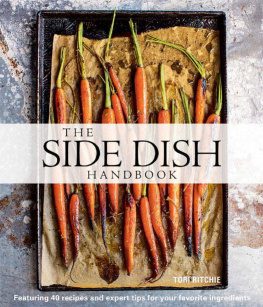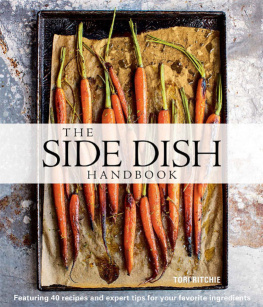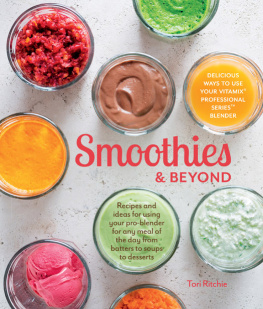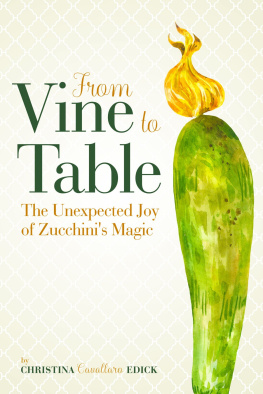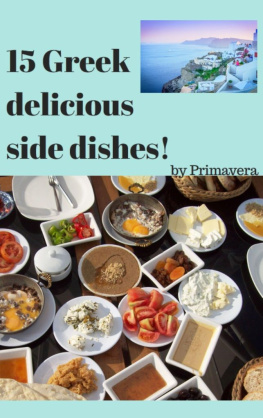Ritchie - The side dish handbook
Here you can read online Ritchie - The side dish handbook full text of the book (entire story) in english for free. Download pdf and epub, get meaning, cover and reviews about this ebook. year: 2014, publisher: Weldon Owen, genre: Home and family. Description of the work, (preface) as well as reviews are available. Best literature library LitArk.com created for fans of good reading and offers a wide selection of genres:
Romance novel
Science fiction
Adventure
Detective
Science
History
Home and family
Prose
Art
Politics
Computer
Non-fiction
Religion
Business
Children
Humor
Choose a favorite category and find really read worthwhile books. Enjoy immersion in the world of imagination, feel the emotions of the characters or learn something new for yourself, make an fascinating discovery.
- Book:The side dish handbook
- Author:
- Publisher:Weldon Owen
- Genre:
- Year:2014
- Rating:3 / 5
- Favourites:Add to favourites
- Your mark:
- 60
- 1
- 2
- 3
- 4
- 5
The side dish handbook: summary, description and annotation
We offer to read an annotation, description, summary or preface (depends on what the author of the book "The side dish handbook" wrote himself). If you haven't found the necessary information about the book — write in the comments, we will try to find it.
Ritchie: author's other books
Who wrote The side dish handbook? Find out the surname, the name of the author of the book and a list of all author's works by series.
The side dish handbook — read online for free the complete book (whole text) full work
Below is the text of the book, divided by pages. System saving the place of the last page read, allows you to conveniently read the book "The side dish handbook" online for free, without having to search again every time where you left off. Put a bookmark, and you can go to the page where you finished reading at any time.
Font size:
Interval:
Bookmark:
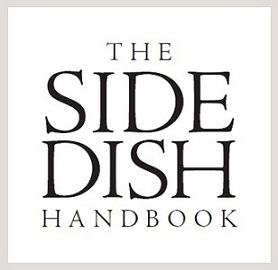
TORI RITCHIE
Photographs by
KATIE NEWBURN
Illustrations by
MARGARET BERG

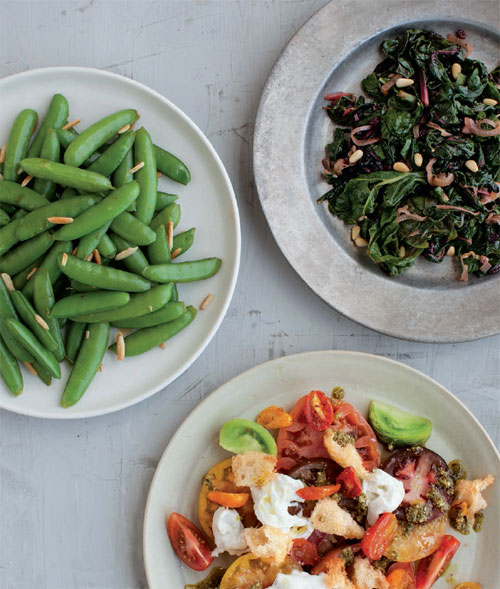
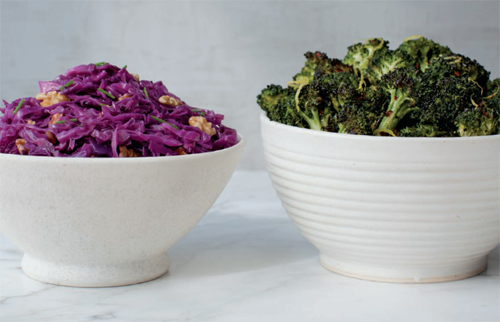
CONTENTS
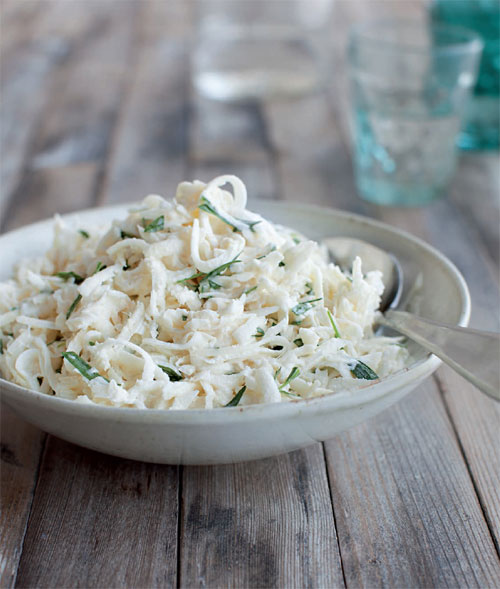
Next time you are at a restaurant, take a close look at your plate. You may have ordered meat or seafood, but the most interesting thing could be what comes with it. In this era of celebrating (even worshipping) the seasonal, sustainable, and local, side dishes often nudge out protein for the spotlight. Its here that chefs and home cooks explore their creativity, working with an unlimited palette of colors, textures, and flavors. You see the seeds of it when you wander the farmers market. Watch people stopping to ogle the asparagus and stare at the bright orange cauliflower cultivar aptly named Cheddar. Isnt this where you find inspiration, too?
Its also where you are going to find maximum value and nutrition. Vegetables and grains are superfoods, full of vitamins, minerals, fiber, and antioxidants. The more you eat of them, the better you will feel. Plus, when you compare them to animal protein, plant foods are much more economical, and the cultivation and consumption of them is far better for the planet.
But this is not a book about health or economics or saving the environment. This is a book about unforgettable side dishes. These recipes zero in on forty vegetables and grains and the best way to serve them. Sometimes it is a spin on a classic recipe with an unexpected ingredient that makes it stand apart. Other times, the magic factor is the cooking method. If you grew up eating steamed brussels sprouts, no wonder you dont like them. If you roast them and serve them with bacon-walnut vinaigrette, no doubt your opinion will change.
Most of the recipes in this book are designed to serve four to six people for an everyday meal. They are simple dishes you can throw together at the end of the workday, then pair with a steak or chop , also make delicious choices for light, healthy lunches.
The first step to a great side dish is letting the market tell you when to make it. Whether you shop daily or on the weekends, go with what is in season and looks best that day. In other words, dont choose a recipe first, then force it to happen when the main ingredient looks past its prime. This book is organized as a handbook, so you can refer to it at the market or when you get home. Better to grab the corn or tomatoes at their absolute peak and make than to head out with a must-have vegetable on your shopping list only to discover that its time has passed.
You will also find surefire seasonal recipes here that will allow you to plan ahead. Spring means asparagus, fava beans, and English peas, so consider recipes featuring those vegetables when your local markets start looking green. Fall is mushroom time, which means the and youll have an amazing dish to fall back on any time of the year.
Whether or not you buy organic produce is a personal decision. Just bear in mind that organic growing methods are gentler on the environment, and that the produce they yield tends to taste better than its conventionally grown counterpart. Nowadays, some organic produce is cultivated in another hemisphere and flown long distances, however, so it may not be the wisest choice. And since organic food is not always accessible or affordable, the best advice is to shop locally and seasonally above all else.
When you are choosing vegetables at the market, use all your senses to examine them. Check for vivid color and no rotten spots with your eyes, for the right texture and heft with your hands, for sunny fragrance (such as in tomatoes and herbs) with your nose, and even scrunchiness with your ears (a good indication that chard and other greens are really fresh). If you are lucky enough to encounter a vendor offering tastes, those bites are the perfect indicator if what is being sold is truly ripe.
At home, use all your senses when you cook, too. Often the most underrated is smell. We depend on our eyes and hands to guide us through the steps of a recipe, but its our nose that will tell us when something is perfectly cooked. Just take a whiff of your kitchen when broccoli is roasting. At first it will smell raw, almost cabbagey, but when the exact moment of caramelization is reached, the fragrance will be sweet and toasty and irresistible. Thats when its time to open up the oven.
Then theres taste. The whole goal of this book is to get maximum flavor out of each of the forty ingredients. The choice of cooking method is crucial, but so is the balance of salt, fat, and acid in each recipe. Plus, theres the element of contrast. When the central ingredient is a vegetable or grain, the play of crunchy and soft, creamy and crisp, even hot and cold is what makes each recipe great. To achieve this, bread crumbs, nuts, cheese, spices, olives, fresh citrus and herbs, and preserved lemons are deployed in just the right combinations.
10 HOLIDAY SIDE DISHES
You will find a lot of roasted vegetables in this book. The brassicas, such as cabbage, broccoli, and brussels sprouts, and the roots, like carrots and beets, benefit from the intense dry heat of an oven, which concentrates sugars and provides the sublime contrast of crunchy on the outside and soft and tender on the inside.
Other cooking methods used are sweating (letting the vegetable cook, covered, in its own juices), braising (covered, but with more liquid and other ingredients added to exchange flavors), sauting or stir-frying (stirring quickly in an open pan with minimal fat), broiling (tucking dishes under the broiler to brown their surface), and grilling (cooking foods over an outdoor gas or charcoal grill). What you wont find is steaming, which drains away flavor rather than enhances it, or deep-frying, which masks an ingredient rather than highlights it.
To make cooking side dishes easy and efficient, you need just a few pieces of equipment. The most common is a sharp chefs knife. With it, you can prep almost everything in this book. For very fine slicing, a mandoline or a food processor is handy. Graters, including a box grater and a Microplane zester, are also practical.
A large, 10- to 12-inch (25- to 30-cm) saut pan is indispensable. What distinguishes it from the relatively shallow, flare-sided frying pan (skillet) is its straight sides about 3 inches (7.5 cm) high and a snugly fitting cover. This single pan enables you to saut, sweat, brown, braise, or sear, and the size is ideal for recipes serving four to six people. Round all-purpose pans with loop handles, stove-top woks, and wide frying pans also work, as long as they have a matching lid.
Because roasting is an essential method, youll need a few sturdy baking sheets. Rimmed half sheet pans (18 by 13 by 1 inch/45 by 33 by 2.5 cm) are the best because the food wont roll off when you move the pan from counter to oven and back again. Parchment paper is crucial for roasting vegetables because it keeps the food from sticking, blots excess oil, and makes cleaning the baking sheet as simple as a wipe down.
Font size:
Interval:
Bookmark:
Similar books «The side dish handbook»
Look at similar books to The side dish handbook. We have selected literature similar in name and meaning in the hope of providing readers with more options to find new, interesting, not yet read works.
Discussion, reviews of the book The side dish handbook and just readers' own opinions. Leave your comments, write what you think about the work, its meaning or the main characters. Specify what exactly you liked and what you didn't like, and why you think so.

